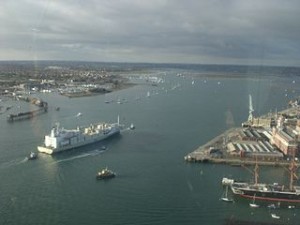
Among the key findings of the “ITF Transport Outlook 2015” presented yesterday show that intra-Asian freight volumes will see particularly strong growth, rising 403% to 2050. Intra-African freight movement is also seen to zoom upward by 715% by then. Road transport will dominate in these areas due to lack of other modes, said the report.
The paper also posits that the North Pacific route will surpass the North Atlantic as the world’s busiest trading corridor in freight volume, growing 100 percentage points faster than the North Atlantic. The Indian Ocean corridor will see large growth, with freight volume quadrupling.
“As a result, CO2 emissions from freight transport will grow by 290% by 2050. Freight will replace passenger traffic as main source of CO2 emissions from surface transport,” said the report, unveiled at the Organization for Economic Cooperation and Development (OECD) headquarters in Paris, France.
“The foreseeable increase in global freight represents an unprecedented challenge for the world’s transport systems,” said ITF Secretary-General José Viegas at the launch. “Increasing capacity constraints in transport can act as a brake on economic growth. A quadrupling of freight emissions can seriously undermine climate change mitigation.”
Viegas outlined a four-point action plan to avoid such a scenario. One is to improve capacity management since many freight facilities are underutilized.
Another is to invest in missing links such as more alternative and multimodal connections to increase efficiency.
The third is to prepare for mega-ships by adapting infrastructure to more and bigger vessels, including the port-hinterland connections.
Lastly, he called for an increase in vehicle utilization to improve load factors and reduce idle times across supply chains.
The ITF at the OECD is administratively integrated into OECD, but an intergovernmental organization in its own right. With 54 member-countries, it acts as a strategic think-tank for transport policy and organizes an annual summit of ministers.
Photo: Editor5807









